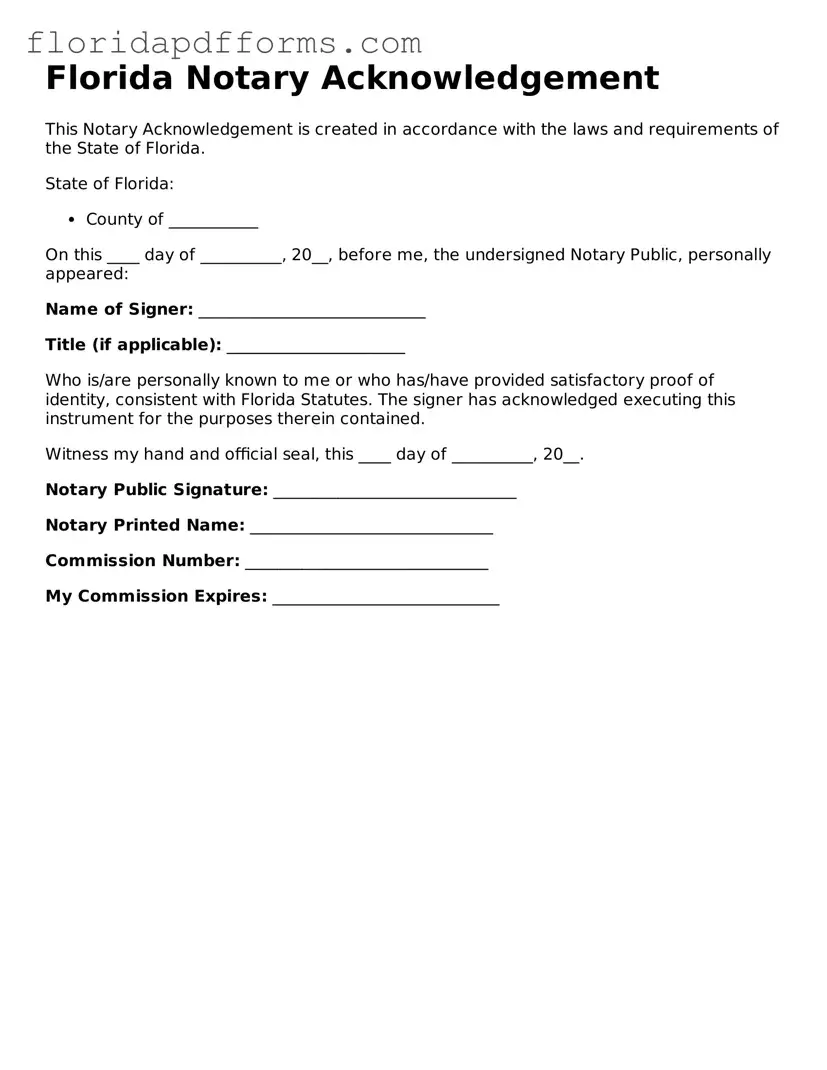Official Notary Acknowledgement Template for Florida
The Florida Notary Acknowledgement form is a legal document used to confirm that a signature on a document was made in the presence of a notary public. This form serves to provide assurance that the signer is who they claim to be and that they signed willingly. To ensure your documents are properly notarized, fill out the form by clicking the button below.
Modify Notary Acknowledgement Now

Official Notary Acknowledgement Template for Florida
Modify Notary Acknowledgement Now

Modify Notary Acknowledgement Now
or
⇓ Notary Acknowledgement File
Don’t stop halfway through your form
Finish your Notary Acknowledgement online with quick edits and instant download.